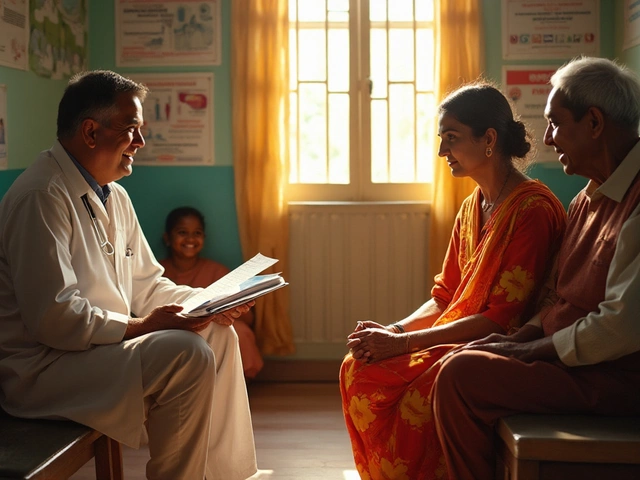Uncurable Cancer – What It Means and How to Cope
When you hear the word uncurable cancer, you might picture a hopeless situation. The truth is a bit more nuanced. Some cancers grow so fast, resist every drug, or spread before we can catch them. That makes them “incurable” with current medical options, but it doesn’t mean there’s no help at all.
Understanding why a cancer is labeled uncurable helps you ask the right questions and plan for the future. It also lets you focus on what you can control – pain relief, staying active, and keeping a good quality of life.
Which Cancers Are Called Uncurable?
Doctors usually reserve the term for cancers that have a very low five‑year survival rate and few effective treatments. The most common examples in India and worldwide are:
- Pancreatic cancer – Often diagnosed late, it spreads quickly and resists chemotherapy.
- Glioblastoma – An aggressive brain tumor that comes back even after surgery and radiation.
- Advanced lung cancer (small‑cell) – Grows fast and often spreads before it’s caught.
- Metastatic liver cancer – When liver cancer spreads beyond the liver, treatment options narrow.
- Mesothelioma – Linked to asbestos exposure, it usually appears decades later and is hard to remove.
These cancers share a few traits: early detection is rare, they infiltrate vital organs, and they don’t respond well to standard chemo or radiation. That’s why doctors focus on palliative care – treatments that shrink symptoms rather than cure the disease.
Living with an Uncurable Cancer
Finding out your cancer is deemed uncurable can feel like the end of the road, but it’s often the start of a different kind of journey. Here are practical steps that make a big difference:
- Ask for a clear treatment plan. Your oncologist should explain what each option does – whether it’s to shrink the tumor, ease pain, or extend life by months.
- Explore clinical trials. New drugs are tested all the time. A trial might give you access to cutting‑edge therapy that isn’t otherwise available.
- Get a pain‑management specialist. Modern pain meds, nerve blocks, and even physical therapy can keep you comfortable.
- Build a support network. Family, friends, support groups, or counselors can help you cope emotionally.
- Focus on daily goals. Small wins – a short walk, a favorite meal, a hobby – add up and improve overall well‑being.
Nutrition also plays a role. Even if you can’t eat a strict “cancer diet,” staying hydrated and choosing easy‑to‑digest foods like soups or smoothies can keep your strength up.
Finally, talk openly with your doctor about advance care planning. Knowing your wishes for end‑of‑life care now makes future decisions less stressful for everyone.
Living with an uncurable cancer isn’t about giving up; it’s about shifting focus from a cure that doesn’t exist today to a life that feels as full as possible. Keep asking questions, stay involved in your care, and lean on the people around you. That mindset makes the toughest road a little easier to travel.

Understanding Uncurable Cancers: Insights and Advances
Discover the types of cancers for which current medical science offers no definitive cure. Explore the complexities that make some cancers difficult to treat successfully, and learn about emerging research that aims to turn the tide. This dive into oncology highlights the hope and challenges faced by both doctors and patients. A pragmatic look at the steps being taken toward a future with fewer untreatable cancers.




